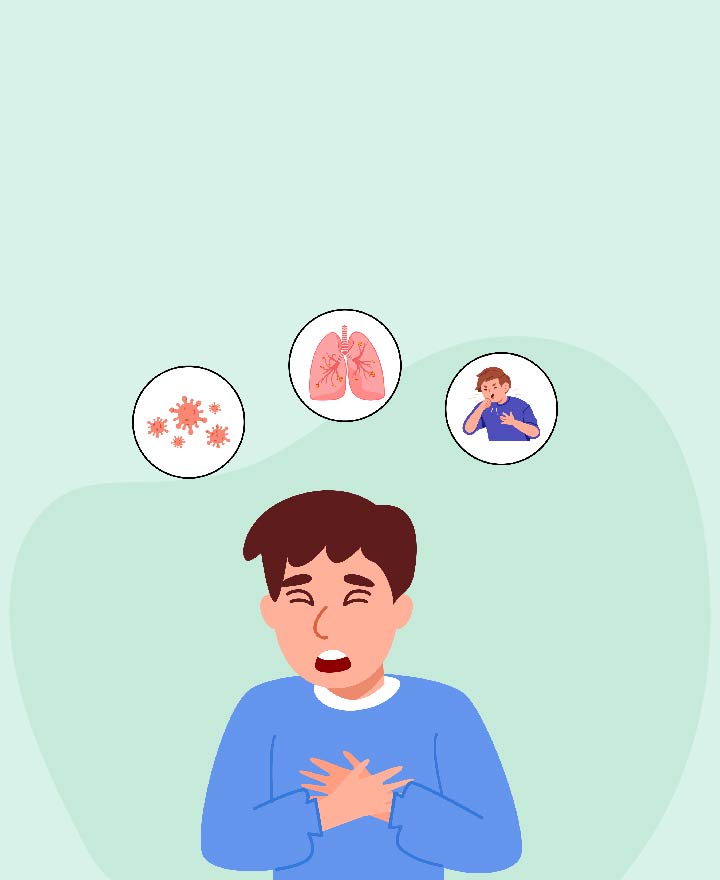

What You Should Know About Dry Mouth
The saliva produced by your salivary glands plays a very important role in your dental health. It helps to keep your mouth clean and moist. It aids digestion and keeps mouth infections at bay. When this gland doesn’t produce enough saliva (due to various reasons), your mouth starts to feel dry. If left untreated for long, this can lead to severe issues. Read on to know more.
What is Dry Mouth?
Dry mouth (known medically as xerostomia) is caused when the saliva produced by your salivary glands is not enough for your body. Saliva helps to moisturise your mouth, and when this doesn’t happen, it can lead to dry mouth and various other problems. This is because, apart from its hydrating properties, saliva is also known to fight against fungal and bacterial infections that can cause tooth and gum problems.
Causes of Dry Mouth
In most cases, dry mouth causes could be one of the following:
• Specific medications
Many prescription and non-prescription drugs prescribed by doctors for below conditions can cause dry mouth:
• Mental health and psychotic disorders
• Common cold
• Obesity
• Skin issues like acne
• Diarrhoea
• Nausea
• Parkinson’s Disease
• Epilepsy
• Hypertension
• Sedatives, given before certain treatments
• Muscle relaxants
• Specific infections
Some diseases or infections that may trigger dryness in the mouth are:
• Sjogren’s Syndrome
• Anaemia
• High blood pressure
• Cystic fibrosis
• Parkinson’s disease
• Stroke
• Mumps
• Diabetes
• Sexually transmitted diseases like HIV or AIDS
• Side effects of specific medical treatments
Some treatments for certain conditions can also impact the functioning of the salivary gland. Hence, the production of saliva is reduced drastically, leading to mouth dryness. Common examples of such treatments are chemotherapy, immunotherapy, radiation therapy, etc.
• Damage to the nerves
An important mouth dryness reason is nerve damage, especially to the nerve in the head or neck area. Surgical procedures, accidents or injuries can cause this damage.
• Lack of proper hydration
Some of the reasons that can make you feel dehydrated are profuse sweating, fever, nausea, diarrhoea and loss of excessive blood. When your body doesn’t get enough water, your mouth starts to feel dry.
• Absence of salivary gland
Sometimes, doctors surgically remove the salivary gland of a person to treat serious health complications. Here, there is no chance of saliva production, leading to xerostomia.
• Unhealthy lifestyle
Smoking and chewing tobacco reduce the saliva production in your body, causing dryness in the mouth.
Reasons for Dry Mouth at Night
In some cases, you may wonder, “Why my mouth is getting dry at night, though it seems to be normal during the day?” Here are some common reasons that cause mouth dryness at night.
• Breathing through your mouth because of nasal congestion or other issues.
• Excessive use of the CPAP (Continuous Positive Airway Pressure) machine – a machine that helps people with sleep apnoea and other sleep disorders.
• Continuing to wear dental retainers at night can cause gum issues like swelling, leading to reduced saliva production.
Symptoms
Usually, dry mouth symptoms could be one of these:
• Feeling thirsty often
• Sticky feeling in the mouth and throat
• Split or cracked skin on the lips
• Mouth sores
• Burning sensation, particularly on the tongue
• Redness of the tongue
• Difficulties in doing normal tasks like speaking, eating, tasting and swallowing
• Nasal passage feeling dry and hoarse
• Sore throat
• Bad odour in the breath
• Frequent infections in the mouth and/or throat
Complications
If undiagnosed, it can aggravate and cause the following health risks:
• Cavities
• Severe gum diseases
• Painful and itchy sores in the mouth
• Cracked and bleeding lips
• Oral thrush
Treatment
If dry mouth is due to certain medications, your doctor may reduce the dosage or prescribe alternative medicines to keep your saliva production intact. In some cases, doctors may also recommend using a substitute for saliva or an artificial saliva product to alleviate dry mouth. Stimulators to improve saliva production, and in very rare cases, surgical repair of salivary glands are also done to correct the dry mouth problem.
Dry Mouth Remedies and Prevention Tips
Some simple yet effective preventive tips and remedies you can try to prevent dryness in your mouth are:
• Keeping yourself adequately hydrated
• Continuously sipping water while eating to ease the process of swallowing
• Staying away from sugary, caffeine-based and aerated beverages
• Chewing sugarless candies (with cinnamon, mint or citrus flavours) to improve saliva production
• Quitting smoking
• Limiting spicy or salty foods
• Using a humidifier during the night
• Using a soft-bristled toothbrush
Dry Mouth in Pregnancy
Usually, many pregnant women experience dryness in their mouth and throat. According to experts, this could be due to several reasons, such as:
• Changes in hormonal balances:
Pregnant women produce higher levels of oestrogen and progesterone, leading to their mouths feeling acidic and dry.
• Nausea:
Often called morning sickness, this leaves a very dry sensation in the mouth of pregnant women, especially in their first trimester.
• Dehydration:
Women’s bodies need more water than usual during pregnancy, and dehydration can cause dryness of the mouth.
• Gingivitis:
According to studies, at least 65-70% of pregnant women are prone to gingivitis, a condition causing gum inflammation.
COVID and Dry Mouth
According to studies conducted on COVID-19 patients, it has been proven that dry mouth was one of the first symptoms they experienced, even before other common symptoms such as fever, loss of sense of taste, and cough. SARS-CoV-2, the virus causing COVID-19, impacted the salivary glands early on, leading to reduced saliva production in a patient’s mouth.
Conclusion
When you experience dry mouth, usually, home care tips can be followed to get rid of this issue. Changing your lifestyle and eating habits can provide some relief from this issue. In rare cases, dry mouth can lead to certain health risks. Make sure you have invested in a good health insurance policy to cover the costs related to these complications.
One of the important components of our overall wellness is also being financially secured. Healthcare emergencies can happen any time, but a good health insurance policy can protect you from such uncertain situations. To know more about Wellness and other health related tips, visit the wellness corner.
Disclaimer: This blog provides general information and discussions about health and related subjects. The information and other content provided in this blog, website or any linked materials are not intended and should not be considered or used as a substitute for medical advice, diagnosis, or treatment. Kindly contact your doctor before starting a new medicine or health regime.
Related Articles
Mouth Ulcers in Infants – Causes and Remedies to Treat Them
Bad breath: Causes, Treatment and Prevention
Everything to know about Dental Pyorrhea
10 home remedies for Dehydration
Published on July 09, 2025















 Health Insurance
Health Insurance  Travel Insurance
Travel Insurance  Car Insurance
Car Insurance  Cyber Insurance
Cyber Insurance  Critical Illness Insurance
Critical Illness Insurance
 Pet Insurance
Pet Insurance
 Bike/Two Wheeler Insurance
Bike/Two Wheeler Insurance  Home Insurance
Home Insurance  Third Party Vehicle Ins.
Third Party Vehicle Ins.  Tractor Insurance
Tractor Insurance  Goods Carrying Vehicle Ins.
Goods Carrying Vehicle Ins.  Passenger Carrying Vehicle Ins.
Passenger Carrying Vehicle Ins.  Compulsory Personal Accident Insurance
Compulsory Personal Accident Insurance  Travel Insurance
Travel Insurance  Rural
Rural